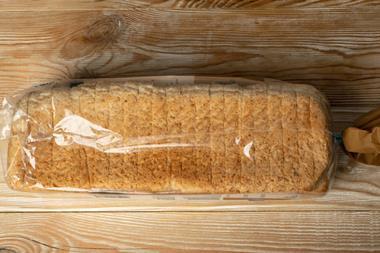The Federation of Bakers (FOB) is to launch a campaign promoting the role of bread in the UK diet, following the publication of an updated review by the British Nutrition Foundation (BNF).
FOB’s “proactive” campaign comes at a time when consumer demand for wrapped and sliced bread is at an all-time high, with it increasing as much as 50% during the health crisis, said the organisation.
It is accompanied by a website refresh and a partnership with the British Dietic Association, which aims to promote positive messages about bread to its network of 9,000 food and nutrition professionals via its Healthier You initiative. The partnership, FOB added, would also allow it to disseminate the benefits of bread to a million people committed to making positive changes to their diet and lifestyle.
“With bread playing an important part in a healthy balanced diet and no more so than during a time like this, it is vital that we educate people about the range of nutrients all bread delivers,” said Gordon Polson, chief executive of the FOB.
“The BNF review reaffirms bread’s place as one of the UK’s favourite staple foods and is an excellent reminder of the value of bread, particularly wholegrain bread, to our diet.”
The updated BNF review considered the contribution of bread (including white, wholemeal, brown and wheat germ) to nutrient intakes, the biological effects of different components of bread and the health claims related to these, as well as exploring future trends for bread.
Here are some key facts from the report:
- Despite a marked increase in the range of different breads available to UK consumers, the amount of bread consumed in the average British diet is much lower than in the past, with bread purchases falling from 1,289g to 527g per person per week from 1960 to 2017/2018 [DEFRA 2019]. This may reflect the increased availability and popularity of other starchy foods, such as pasta and rice, and potentially negative misconceptions around bread and health, such as weight gain and gastrointestinal symptoms.
- In a June 2019 survey of 2,000 UK adults, 96% reported buying bread in the past month, 74% reported buying packaged sliced bread and 42% reported consuming packaged sliced bread daily [Mintel 2019].
- Bread provides around 11–12% of energy, 16–20% of carbohydrate, 10–12% of protein and 17–21% of fibre intakes across all age groups.
- White bread is the largest contributor to salt intakes in the UK, though average salt content has been declining, largely as a result of the government reformulation programme with the food industry, including the setting of salt reduction targets.
Ultimately, the report highlighted “that bread continues to play an important role in the current UK diet, contributing to intakes of carbohydrate (as starch), fibre, protein and numerous vitamins and minerals including calcium, iron and thiamin”.


























No comments yet